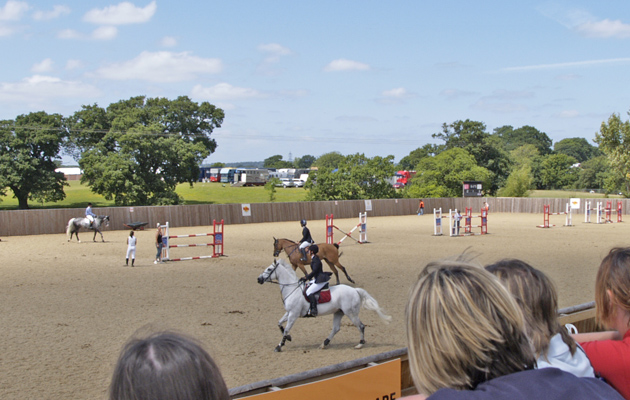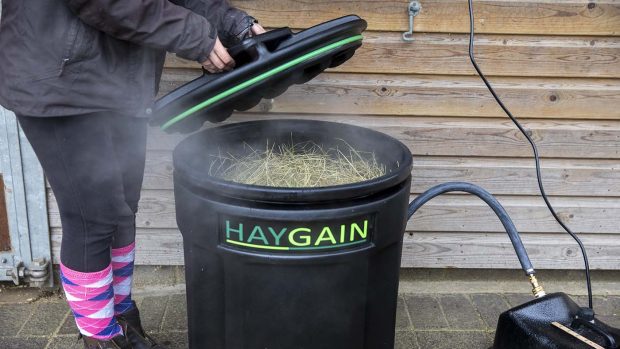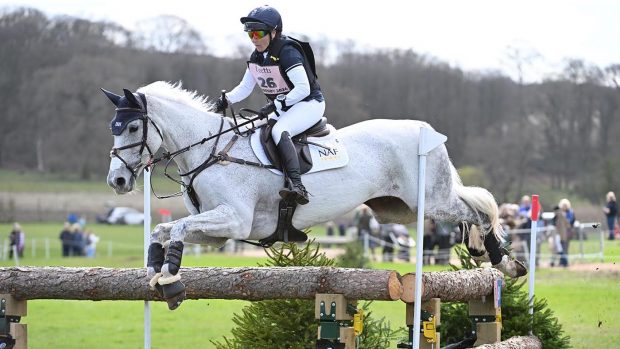Today is World Mental Health Day (10 October) and Andrea Oakes finds out why riders can be particularly susceptible to problems — and how to combat the problem...
1. Winning is rare
According to sport psychologist Michael Caulfield, a former PJA chief executive and a director of Sporting Edge, winning is rare in any equestrian discipline. Ros Canter has triumphed at Badminton, but how often does an eventer take a top title? Even AP McCoy’s record 4,000-plus racing winners came from four or five times as many starts.
“It’s a losing sport,” explains Michael. “You get beaten a lot and you start to question everything: ‘Am I doing it right?’, ‘Am I good enough?’
2. A demanding lifestyle
“The lifestyle is incredibly demanding,” Michael adds. “In other walks of life, you have a pattern, a forecast, but, with horses, it can all so easily go wrong. So much is out of your control — you can put three years into preparing for one day and then on the morning the horse treads on a stone. It’s exhaustingly draining.”
3. You can be relying on luck
Tina Cook, whose international career spanned three decades, knows only too well the dramatic highs and lows of eventing.
“The longer you do it, the more you realise that you need a bit of luck for things to go your way,” she says. “It’s difficult to get to the top and stay there. There are a multitude of things you can get depressed about, such as your riding ability, the quality of your horses, financial support — these things could really get you down. Then there’s the element of your own bravery and what people expect of you. I’m sure many eventers have had frustrating, dark days and asked themselves: ‘Will I ever succeed, or make a living?’
“I’ve been lucky, as I’ve fathomed out a system that works for me,” adds Tina. “There are people out there who will help and there’s a supportive environment at the top. People shouldn’t suffer in silence.”
4. A feeling of isolation
Feelings of isolation are common, according to performance psychologist Charlie Unwin.
“We are phenomenally social animals, yet equestrianism is the only sport where people don’t congregate in performance centres to learn, talk and support one another,” he says, adding that sense of progress can soon become distorted with too long working at home alone. “I always encourage top riders to spend a couple of weeks a year in someone else’s yard, even if they stick to their own routine. Just being with other people stimulates release of the hormone oxytocin and positivity in the brain.”
5. Social media
Another key area that can contribute to negative mood is confusion about our identity — often brought about by the apparently perfect lives of fellow competitors.
“We’ve always known that social comparison is a factor in increased anxiety,” says Charlie. “The difference now is that social media provides a distorted view of others’ achievements and can create a twisted perception of their realities. There’s a normality to what these people experience that is not depicted on Facebook and Twitter.”
6. Financial pressure
“Many dressage riders don’t own their horses, so there’s always the possibility of losing them,” says dressage rider Emile Faurie. “Then there’s the sheer financial pressure. I’ve seen people sell their house to buy a horse, only to lose everything when the horse goes lame.”
When the bad days outnumber the good, where can you turn for help? Here’s how to take action:
Notice the change
“Depression is not a fleeting feeling — you will typically experience a sustained change in emotions or behaviour,” says Dr Philip Hopley of Cognacity, a team of psychiatrists and psychologists offering expertise in high-pressure organisations and sporting environments. “Feeling sad, low, demotivated or anxious for at least two weeks could indicate a problem.”
Share the problem
Try to find a good listening ear such as a trainer, colleague, friend or relative with whom you can discuss your feelings and worries.
Seek professional help
If sessions with a sport psychologist fail to help, you may be suffering from something more than a performance-related issue. Approach your GP, or access professional services if you have private health insurance.
Phone a helpline
It may be easier to speak to an expert in confidence. The new Riders Minds hotline is available, as is the BGA’s Grooms Minds and EEA’s Employers Minds. Racing Welfare also offers an extensive range of services for those seeking help and advice. PJA members can call the Cognacity helpline (www.thepja.co.uk). Other riders can access resources and a confidential helpline at mind.org.uk or samaritans.org.
You may also be interested in reading…

How sports psychology helped an eventer overcome her rotational fall demons
Performance and sport psychologist Camilla Henderson explains how she helped three-star eventer Harriet Dickin get back on track following a

18 expert tips for success on competition day
Sports psychologist Inga Wolframm gives her expert advice for coping with competition day

Subscribe to Horse & Hound this spring for great savings
Horse & Hound magazine, out every Thursday, is packed with all the latest news and reports, as well as interviews, specials, nostalgia, vet and training advice. Find how you can enjoy the magazine delivered to your door every week, plus options to upgrade your subscription to access our online service that brings you breaking news and reports as well as other benefits.




